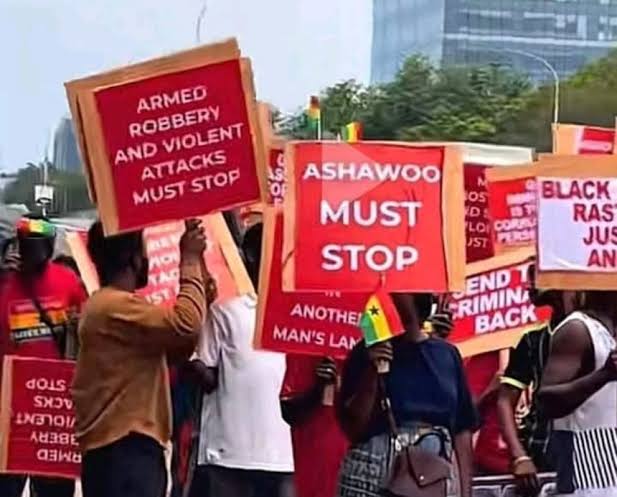Accra, Ghana – Former Nigerian Ambassador to the United States, Joe Keshi, has issued a stern warning to Nigerians living in Ghana, urging them to obey local laws and stop business practices that are fueling anti-Nigerian sentiments in the West African nation.
The diplomat’s comments come after violent “Nigeria Must Go” protests erupted in Accra and Kumasi last month, with Ghanaian traders demanding the expulsion of Nigerian-owned businesses from the retail sector. The demonstrations saw hundreds of locals storming the streets, accusing Nigerian traders of violating investment laws, monopolizing markets, and engaging in illicit activities.
“If You’re in Rome, Behave Like a Roman” – Keshi’s Blunt Message
In an interview with Vanguard, Keshi did not mince words, stating that some Nigerians in Ghana have brought the backlash upon themselves through misconduct.
“Some Nigerians running businesses on the streets of Ghana behave badly,” he said. “You have displaced Ghanaians running small businesses, and yet you flaunt your wealth. If you are in Rome, you behave like a Roman. Nigerians should learn to conduct themselves wherever they find themselves.”
He acknowledged that while Ghanaian protesters may be overreacting, Nigerian traders must also take responsibility for their role in escalating tensions.
Roots of the Conflict: Economic Displacement & Illegal Trade
The protests were triggered by long-standing grievances, including:
✔ Market Monopolization – Nigerian traders allegedly dominate key retail sectors, edging out locals.
✔ Violation of Investment Laws – Many operate without proper licenses or bypass local business regulations.
✔ Social Media Rumors – Unverified claims of fraud, land grabbing, and even ritual killings have inflamed tensions.
Ghanaian protesters carried signs reading “Nigeria Must Go”—a phrase eerily reminiscent of Nigeria’s 1983 mass deportation of Ghanaians, which itself was a retaliation for Ghana’s 1969 expulsion of Nigerian migrants.
Tinubu’s Swift Diplomacy – But Is It Enough?
Keshi praised President Bola Tinubu’s administration for quickly addressing the diplomatic fallout but warned that without behavioral change, tensions will persist.
“Somebody should educate Ghanaians that they are overreacting, especially as their President has a cultural affiliation with Nigeria,” he said, referencing Ghanaian leader Nana Akufo-Addo’s Nigerian heritage. “But Nigerians must also stop giving them reasons to complain.”
What Happens Next?
The Nigerian and Ghanaian governments are now in talks to ease trade restrictions and prevent further clashes. However, Keshi’s message is clear: Nigerians abroad must adapt to local norms—or risk further backlash.
“We cannot keep repeating history,” he said. “Respect is a two-way street.”

